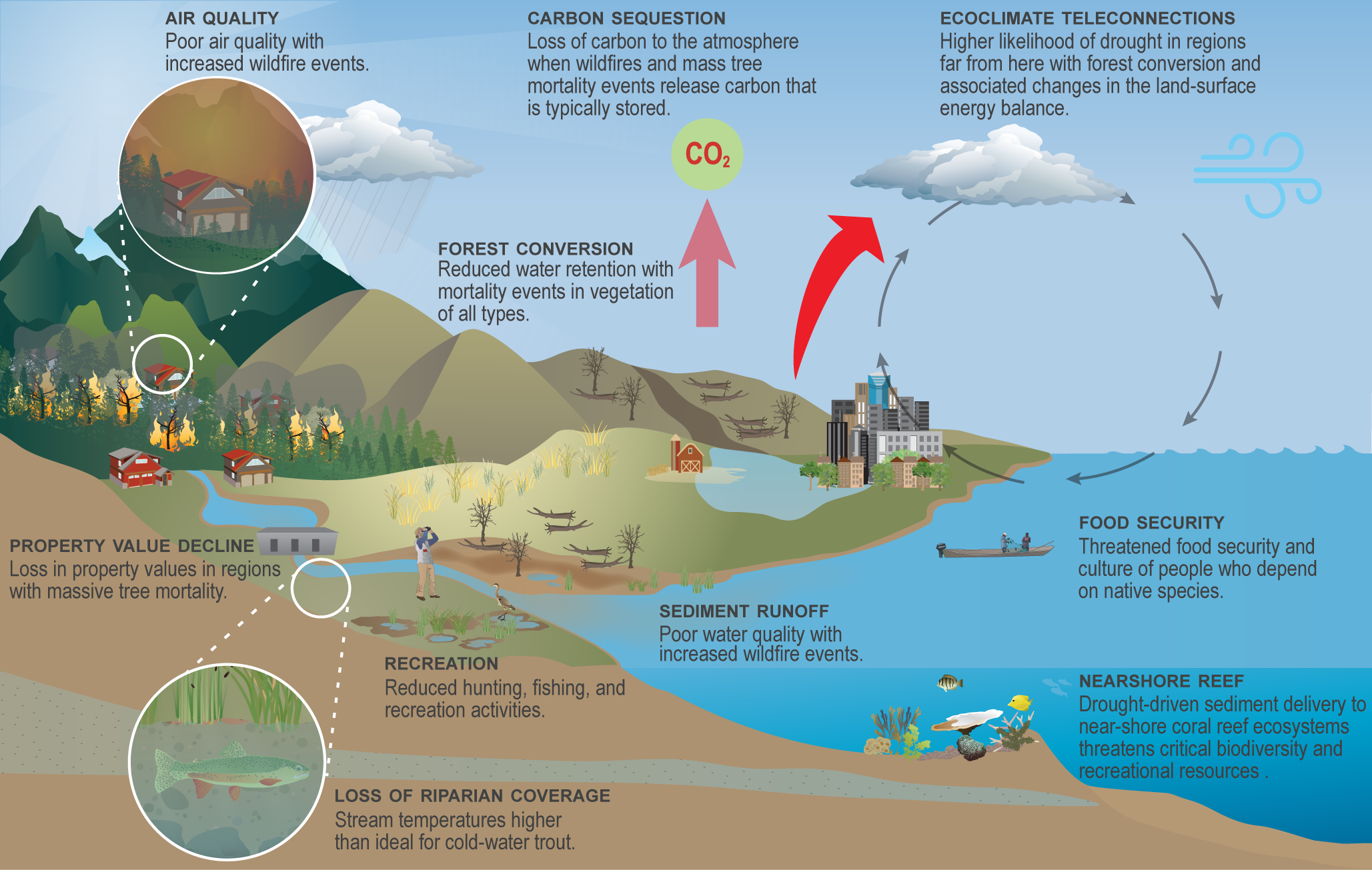Novel forms of drought are emerging globally due to a warming climate, shifting ocean and atmospheric teleconnection patterns, expanding human water use, and a history of human influence on the environment. These droughts are increasing the probability for transformational ecological impacts that cascade to human communities in costly and consequential ways.
A recent study, published in One Earth, identified the emerging issues in ecological drought by employing a unique horizon-scanning approach — a systematic way to explore a topic that is looming — that integrated scientists, managers, and decision-makers. This approach included a series of workshops across the eight regional USGS Climate Adaptation Science Centers (CASCs) with land managers, stakeholders and a group of researchers, including scientists at the Alaska, North Central, Southwest, Northeast, and National CASCs and members of the Science for Nature and People Partnership’s (SNAPP) Ecological Drought working group.
First, the authors of the study identified various kinds of droughts we are currently experiencing that are fundamentally different from historical droughts, making it hard for experts to adequately anticipate future droughts until several key knowledge gaps are filled. Next, the study emphasized that emerging 21st century droughts are more likely to transform ecosystems, that is, to fundamentally change the species composition, structure, and function to such a degree that it affects ecosystem services that humans and wildlife rely upon. Anticipating when and where processes that maintain ecological stability will be overwhelmed, and drought-induced ecological transformation might occur, requires filling some diverse science gaps. Finally, the study highlighted the vital role scientist-stakeholder partnerships will have in co-developing science to inform ecological drought management strategies in the 21st century.
Crausbay and colleagues will be continuing to build on this work to better understand the ecological impacts from drought through a NOAA-NIDIS Coping with Drought grant over the next two years.


